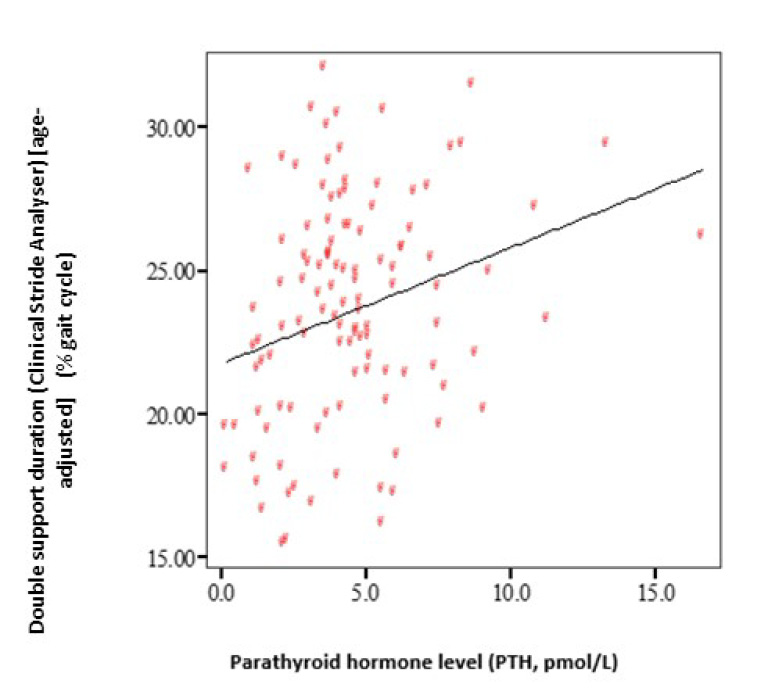By Dr Marie-Louise Bird.
Vitamin D plays an important role in musculoskeletal health, with low levels of vitamin D associated with muscle weakness and poor postural balance. When vitamin D levels are high, they suppress parathyroid hormone (PTH) release explaining why low levels of vitamin D are often found in combination with high levels of PTH. The primary function of PTH is to control calcium levels with the blood. While high levels of PTH are associated with morbidity and mortality in older adults, the specific roles of this hormone on fall risk factors (like balance and gait instability) is less clear. This study was undertaken to gain further insight into the relationship between vitamin D, PTH and physical fall risk factors.
This observational cohort study recruited 122 women (61 pairs of twins >45 years of age) as part of a larger study designed to examine environmental and heritable features of gait and balance. We collected data on dynamic balance, gait, and blood serum levels of vitamin D, PTH and calcium. Serum concentrations were divided into tertiles for association with fall risk factors. High levels of PTH and low levels of vitamin D were both associated with gait instability (increased time in double support during the gait cycle). Low levels of vitamin D was associated with poor dynamic balance as measured by a rapid stepping test.
Low serum vitamin D and high PTH negatively influence measures of physical fall risk in middle age and older women. Importantly, this relationship was not just found in elderly women – our study included women from 47 years of age. This research leads us to think that there may be critical cut off levels of vitamin D and PTH with respect to accidental falls, but further research is needed to validate and clarify this complex issue. Additionally, the role of high levels of PTH without low levels of vitamin D appears more frequently than previously thought, and the independent role of PTH warrants further investigation.

Figure: Parathyroid hormone levels are positively associated with double support duration during walking. As published in Bird et al. Gait Posture 2018.
Publication
Bird, M. L., El Haber, N., Batchelor, F., Hill, K. D, & Wark, J. D. (2018). Vitamin D and parathyroid hormone are associated with gait instability and poor balance performance in mid-age to older aged women. Gait & Posture, 59, 71-75. Doi: https://doi.org/10.1016/j.gaitpost.2017.09.036
About the Author

Marie-Louise Bird
College of Medicine, University of Tasmania, Australia and Physical Therapy Department, University of British Columbia, Canada
Copyright
© 2018 by the author. Except as otherwise noted, the ISPGR blog, including its text and figures, is licensed under a Creative Commons Attribution-ShareAlike 4.0 International License. To view a copy of this license, visit https://creativecommons.org/licenses/by-sa/4.0/legalcode.
ISPGR blog (ISSN 2561-4703)
Are you interested in writing a blog post for the ISPGR website? If so, please email the ISGPR Secretariat with the following information:
- First and Last Name
- Institution/Affiliation
- Paper you will be referencing


